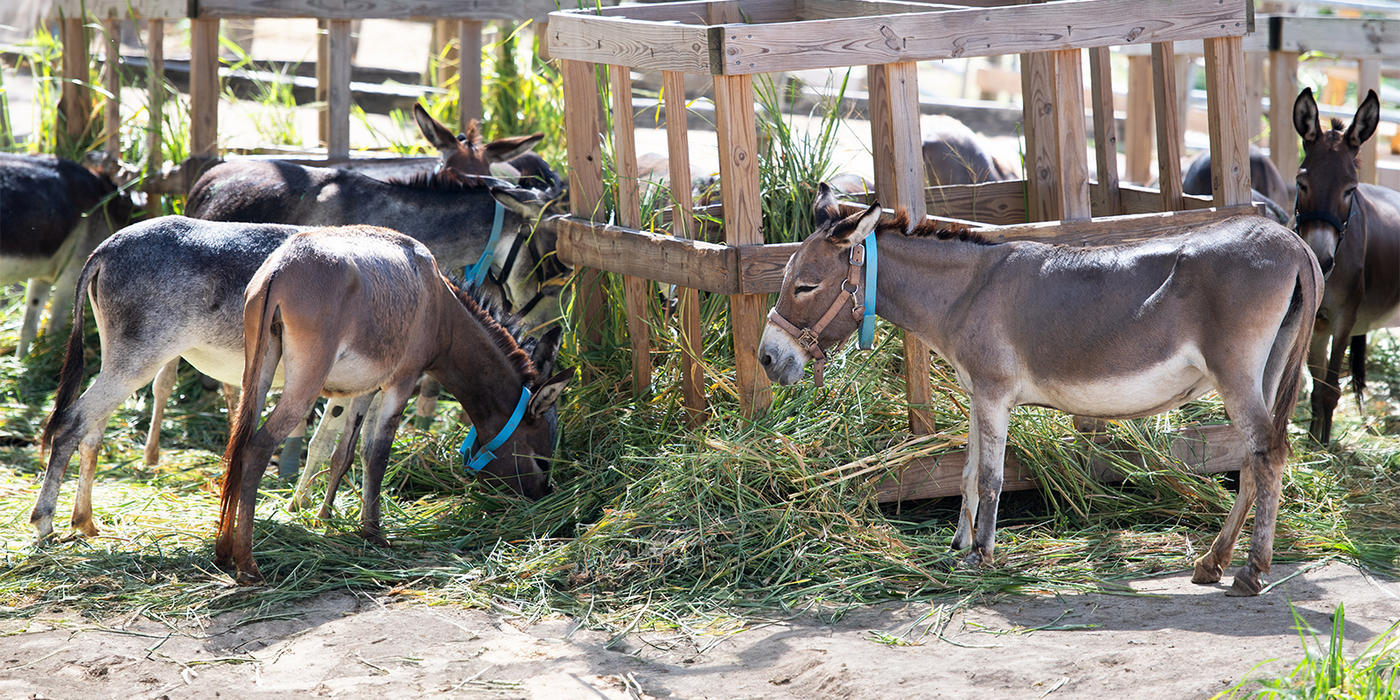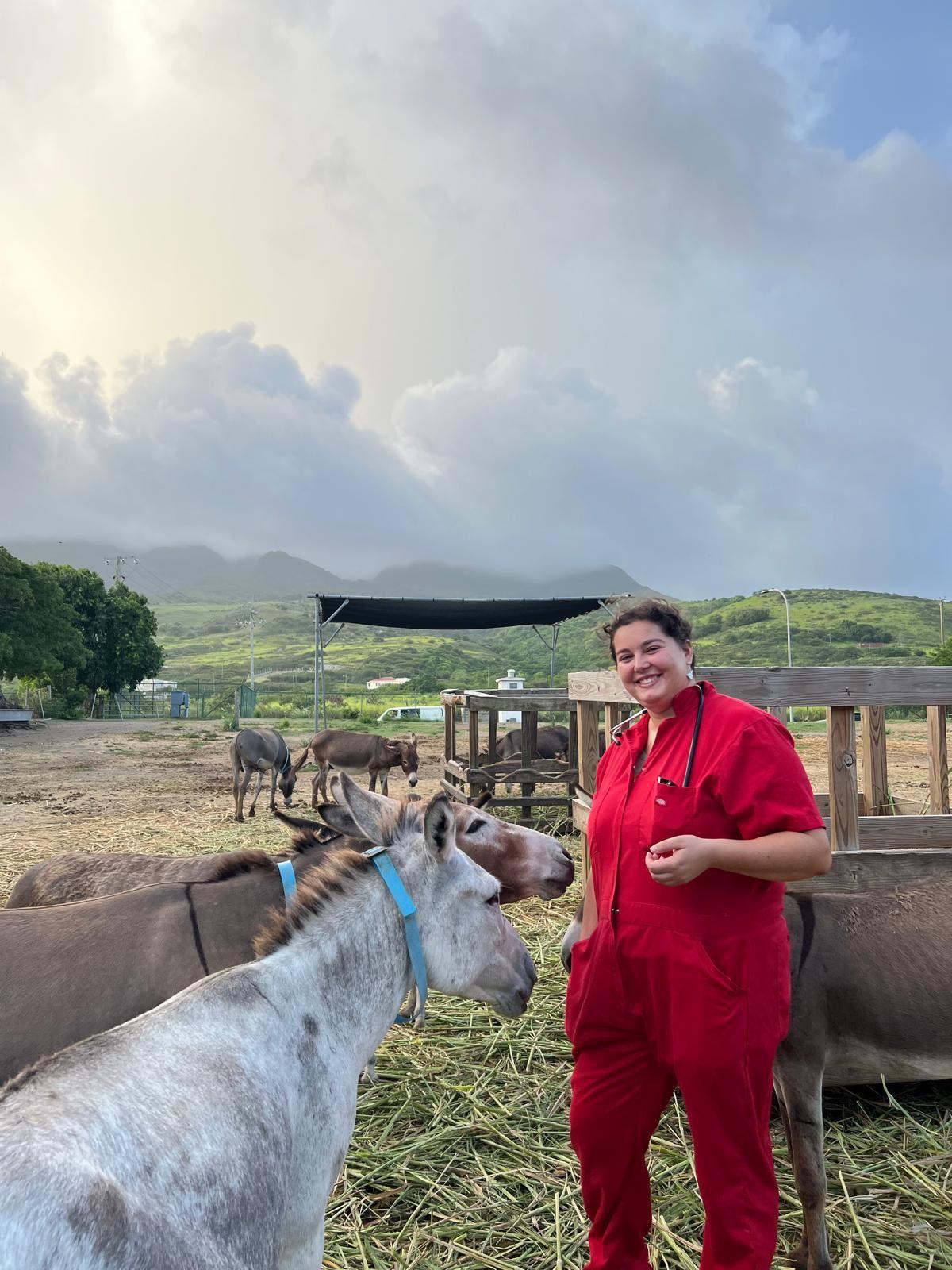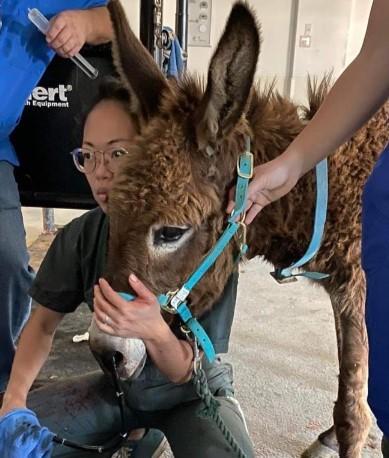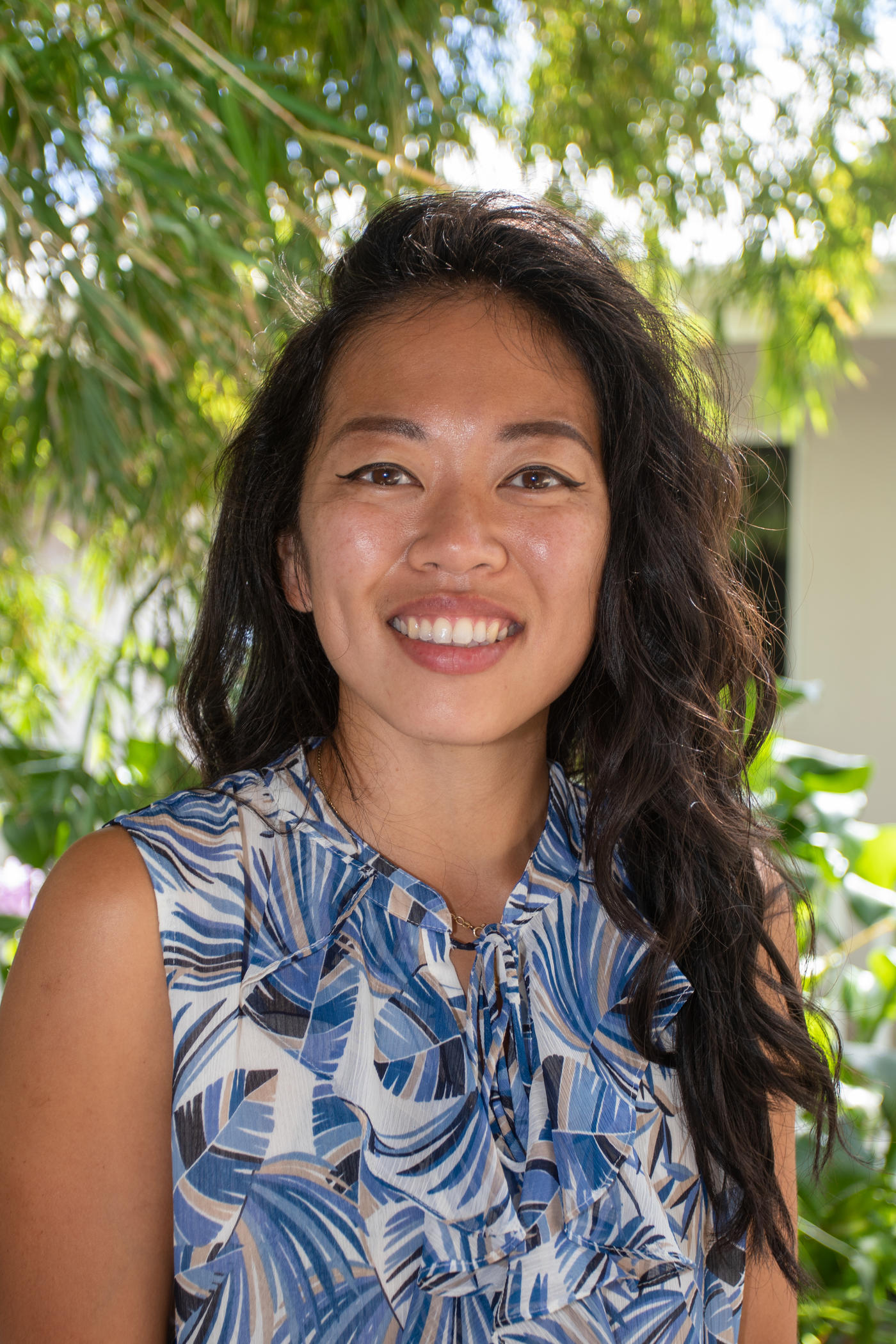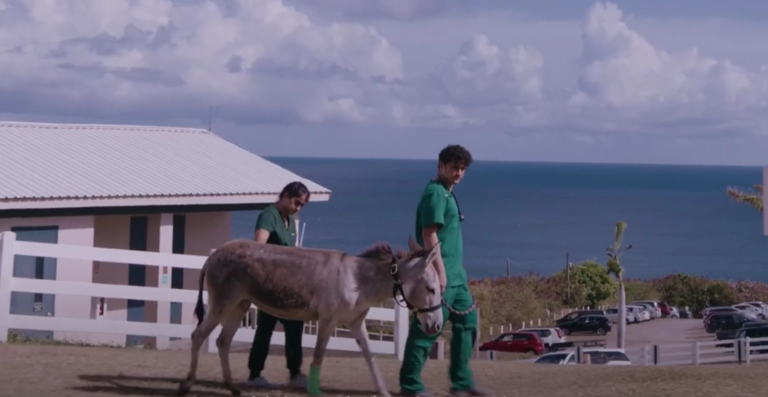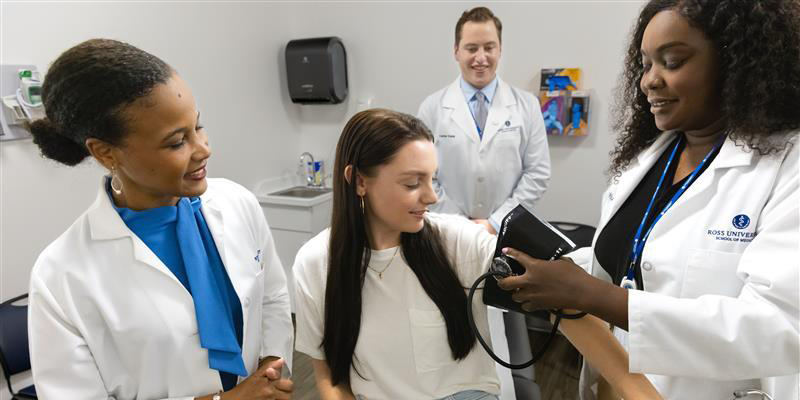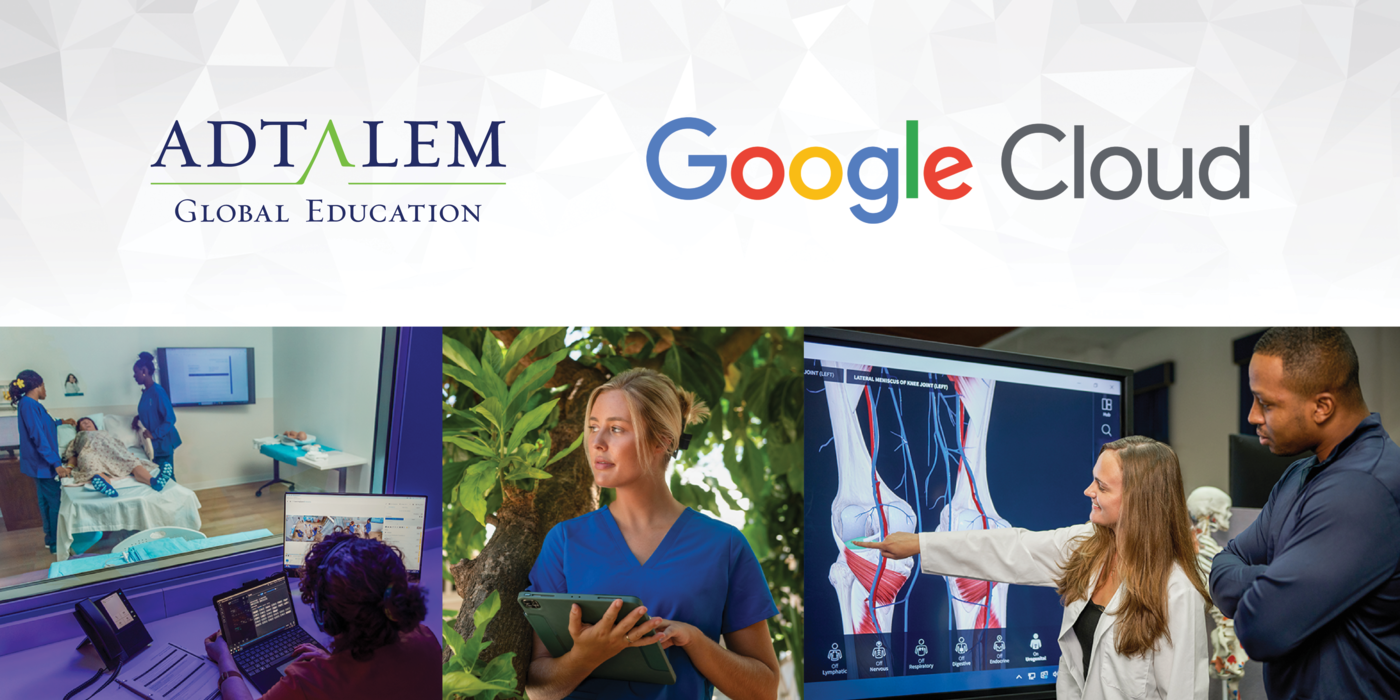Adtalem’s Ross University School of Veterinary Medicine is home to a donkey herd that advances education, research, and agricultural sustainability for their island home.
Grace Ritter’s favorite way to end the day is with the donkeys at Ross University School of Veterinary Medicine (RUSVM).
“I go into the pasture with the herd and a handful of Cheerios, and they all swarm me, and I just get to pet them and relax. It helps me de-stress and is like therapy for me,” says the second-year student. “I don’t have any pets with me here, so the donkeys help fill that void of having animals to interact with, not just for the practical experience, but to have that bond I crave.”
The herd of about 150 donkeys has a lasting impact on students, faculty, and the St. Kitts and Nevis community. Throughout the Doctor of Veterinary Medicine (DVM) program, the donkeys are course instruction models for students to develop their veterinary skills. They are also the subjects of faculty-led research to advance global donkey health. When their time with the herd is finished, they continue as working animals in St. Kitts and Nevis to aid farm production.
Donkeys on St. Kitts and Nevis
The Caribbean is a region overpopulated with donkeys, according to a 2022 study co-authored by a group of five professors and researchers at RUSVM. The United States, Australia and South America are also among the most impacted geographic areas.
One of the co-authors, Dr. Lorenzo Segabinazzi, believes overpopulation is the most important topic for donkeys today.
“We see here on St. Kitts and Nevis, and I have seen in my native Brazil, how important a role donkeys play in One Health ecosystems when they are trained for working conditions or controlled. Regions facing overpopulation have donkeys forced to leave their natural habitats leading to ecological harm to their unfamiliar surroundings.”
To prevent ecological harm, donkeys on St. Kitts and Nevis find a new purpose.
RUSVM works with locals in Nevis to capture and transport wild donkeys to campus. But before they can officially join the herd, they go through extensive testing and training. Because of this, there is a high demand from Kittitian and Nevisian farmers to secure their services as a working animal once they leave the herd. On the farms, the donkeys assist in agricultural sustainability—breaking up the ground to better aerate the soil for crop growth, pulling carts and plows, and protecting herds of other animals.
Dr. Cynthia Xue, assistant professor of equine internal medicine, is most often the first point of contact for prospective herd members.
“When donkeys are brought in, there is a quarantine period where me, RUSVM’s animal resources team, and members of the Donkey Club will work with the donkeys,” she says.
If a donkey completes their training and testing, it joins the herd for typically two semesters of instruction. All students work with the herd at several points in the DVM program, but student members of the Donkey Club are given more access.
In the Donkey Club
Donkey Club is a student organization Dr. Xue helped establish in 2021 for students interested in exploring equine medicine as a career or enhancing their broader knowledge on behavioral training and handling techniques.
With the campus herd, students in the club work on familiarizing the donkeys with their new home and conducting basic behavioral training to ensure they are of the appropriate temperament to be involved in teaching instruction. Easier-to-train donkeys typically join the herd in about six months, but harder-to-train donkeys can take over a year to integrate.
“On the student side, it’s a great educational opportunity,” says Dr. Xue. “For the donkeys, it’s a great way for them to become habituated to humans handling them and to desensitize them to any negative associations they may have with humans or medical care.”
As a donkey handler, Ritter visits the herd several times a week for sessions where she leads club members in practicing various skill-building exercises—haltering, brushing, picking hooves, cardiovascular and gastrointestinal auscultation, getting them on a scale, and even pampering the donkeys with a bubble bath. The club also habituates healthy donkeys in student wet labs to procedures like ultrasound, so that donkeys do not become stressed to this benign medical procedure should it need to be performed on them for a real medical concern.
Hear more from Grace Ritter on her first encounter with a member of the herd and the moment of realization that she found her calling as an aspiring veterinarian.
A Farewell Parade
In their last semester of pre-clinical coursework, students are assigned a donkey to care for in a semester-long live-animal laboratory course. It can also be an informal lesson in the power of the animal-human bond. When the semester comes to an end, students walk their donkeys through campus and return them to the reserve herd for some well-deserved rest in a popular and emotional ceremony—the donkey parade.
“It’s really cool to see how many students who were inexperienced or even scared to work with large animals say goodbye to their beloved donkey,” says Dr. Xue, who has even seen students become teary during their farewells.
Ritter is still one semester away from walking in her cohort’s donkey parade, but she’s already planning for the moment when she has to say goodbye.
“Let's put it this way, I have looked into what the logistics and cost would be to bring a donkey to the United States.”
For more information, email the Adtalem Global Communications Team: adtalemmedia@adtalem.com.

